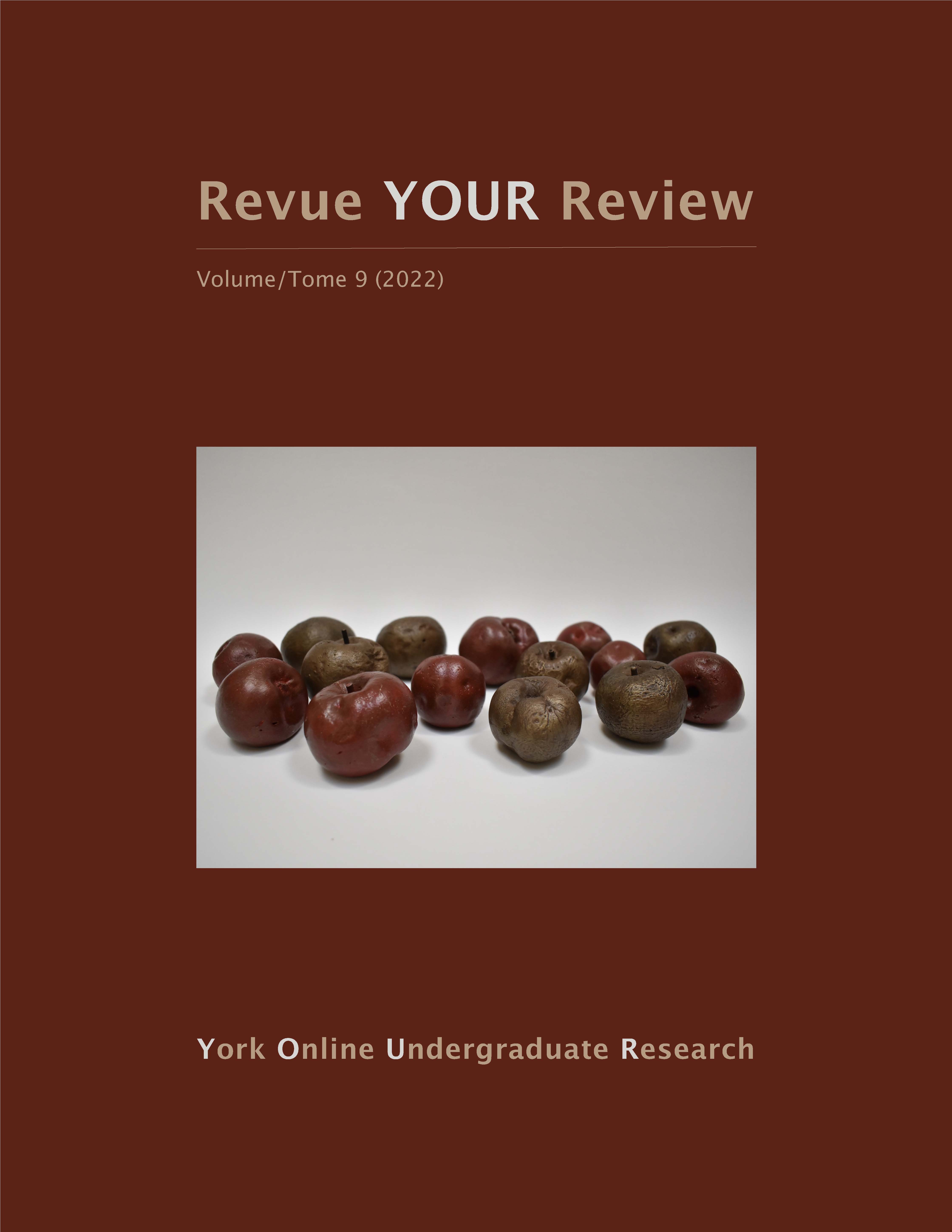A Path Toward Mental Health Equity: Assessing Classic Literature as a Source of Racial Trauma in the Classroom
Abstract
Each year, mental health issues affect 1 in 5 people in Canada. Black Canadians are at a higher risk because of exposure to racism. Currently, classrooms across the country are teaching literature that presents historic racism to Canadian students. This essay explores the negative impact of racism in literature on the mental health of Black students in Canada through two theoretical frameworks. Intersectionality and the Ecosocial approach are used to identify the group most affected by racist literature presented in Canadian classrooms, as well as establish it as a mechanism through which racial trauma negatively impacts the mental health of young, Black students in high school and post-secondary programs. The perspective of Black students and Black educators shows that racism in literature is a source of racism-related stress in schools, and an increasing number of studies show that discrimination and the fear of discrimination activate the body’s stress response system, which can affect both mental and physical health. The resulting analysis speaks to the responsibility and agency of institutions or individuals to understand and confront the issue. While there is not yet a definitive answer to this problem, this paper proposes a solution that will leave the literature intact and help restore the dignity of the racialized groups affected.
Downloads
Published
How to Cite
Issue
Section
License

This work is licensed under a Creative Commons Attribution-NoDerivatives 4.0 International License.
Authors contributing to Revue YOUR Review agree to release their articles under one of three Creative Commons licenses: Creative Commons Attribution 4.0 International; Creative Commons Attribution-NonCommercial 4.0 International; or Creative Commons Attribution-NoDerivatives 4.0 International. All editorial content, posters, and abstracts on this site are licensed under Creative Commons Attribution-NoDerivatives 4.0 International. For further information about each license, see:
https://creativecommons.org/licenses/
In all cases, authors retain copyright of their work and grant the e-journal right of first publication. Authors are able to enter into other contractual arrangements for the non-exclusive distribution of the e-journal's published version of the article (e.g., post it to an institutional repository or publish it in a book or in another journal), with an acknowledgement of its initial publication in this e-journal.


